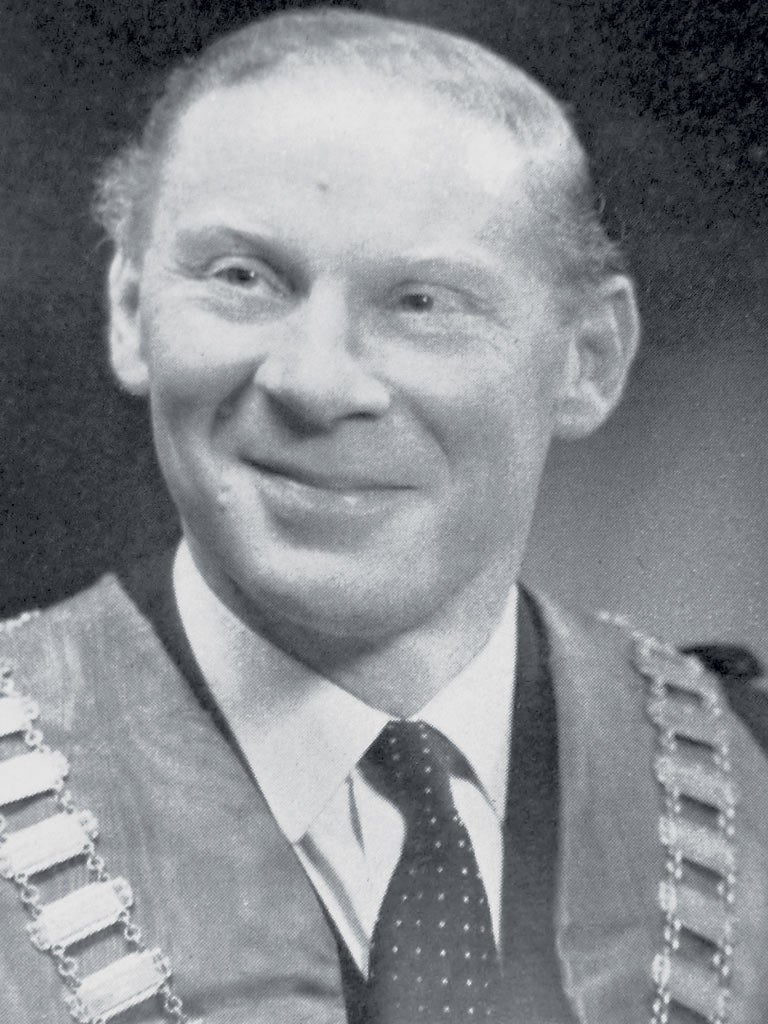Dr Peter Storie-Pugh: Colditz prisoner who became a leading veterinary surgeon

Your support helps us to tell the story
From reproductive rights to climate change to Big Tech, The Independent is on the ground when the story is developing. Whether it's investigating the financials of Elon Musk's pro-Trump PAC or producing our latest documentary, 'The A Word', which shines a light on the American women fighting for reproductive rights, we know how important it is to parse out the facts from the messaging.
At such a critical moment in US history, we need reporters on the ground. Your donation allows us to keep sending journalists to speak to both sides of the story.
The Independent is trusted by Americans across the entire political spectrum. And unlike many other quality news outlets, we choose not to lock Americans out of our reporting and analysis with paywalls. We believe quality journalism should be available to everyone, paid for by those who can afford it.
Your support makes all the difference.There's a photograph in the small museum at Colditz Castle, Germany, which shows three prisoners after their failed attempt to escape from that notorious Second World War prison for Allied officers. In the centre, with a broad grin on his face, is a young Peter Storie-Pugh. He had been incarcerated since 1940, having been wounded and earning a Military Cross during the retreat to Dunkirk; he was captured, sent to Spangenberg prisoner-of-war camp, escaped, was recaptured and sent to Colditz. He remained there until the end of the war.
On his release, he qualified as a veterinary surgeon and enjoyed a successful academic career. He twice became president of the British Veterinary Association (BVA) and of the Royal College of Veterinary Surgeons (RCVS), was a leading figure in EEC veterinary matters and was active in the Territorial Army. He also ran a sheep farm and raised a family. It was as if he was trying to make up for his lost wartime years.
At the outbreak of war, Storie-Pugh had been reading medicine as a foundation scholar at Queens' College, Cambridge. He enlisted immediately and put his studies on hold until hostilities were over. After his liberation from Colditz by American forces in 1945 he did not, however, immediately return to Cambridge; instead, he went to the Royal Veterinary College, London. That change of career was not surprising: his father and grandfather were both distinguished veterinary surgeons. After qualifying in 1948 he became an associate of the Royal Institute of Chemistry in 1949 (later becoming CChem and FRSC) and then went to a research post back at Cambridge, gaining a PhD in 1953 for his work on sheep metabolism. He was then appointed a lecturer in the Department of Animal Pathology, a post he would hold for the next 30 years. He became a Fellow of Wolfson College in 1967.
His activities now expanded. Maintaining his military connection (he had ended the war with a military MBE for his work with fellow prisoners), he began a long connection with the Territorial Army, in which he held the rank of colonel and was awarded the Territorial Decoration (TD). He entered veterinary politics, being elected to the council of the RCVS in 1956 while a member of the BVA council. He was such a success as BVA president that he was elected for a second term in 1971. The RCVS, of which he had been elected a Fellow in 1975, made him its president in 1977. He played a key role in setting up the UK Inter-Professional Group. His farming interests led him to membership of, among other bodies, the Government's Farm Animal Advisory Committee and vice-presidency of the British Association's agricultural section.
But it was Storie-Pugh's involvement with Europe, perhaps engendered by his enforced residence there, which became his overriding preoccupation. As early as 1962 he had been an observer at the EC Veterinary Liaison Committee. Elected president of the Committee on the UK's entry to the Community in 1973, he was instrumental in the transformation of that body into the Federation of Veterinarians of the EEC (FVE). Under his presidency, this organisation was influential in the directive on veterinary education and qualification which set standards throughout the EU. He went on to be a long-serving UK representative on the Economic and Social Committee of the EC, retiring in 1990.
Storie-Pugh's work in Europe had been recognised by his appointment as CBE in 1981. His service to veterinary and farming organisations in the UK brought him too may awards to list.
Storie-Pugh was possessed of great energy; he also had a charismatic personality. Dapper, and, in his earlier days, with vividly ginger hair, he had great presence. Whether explaining some knotty European problem or recounting his sometimes hilarious wartime misadventures, he could always be identified at the centre of any group of which he was a member, emphasising a point with a pipe in his hand.
His first marriage, which produced three children, was dissolved; he married again in 1971 and had four children with his second wife. On his retirement, the family moved to France, which had become virtually his second home. His last years were marred by the aftermath of injuries suffered in a serious car accident in 1998. Few men have packed so much into their lives as Peter Storie-Pugh. He leaves behind his many achievements and, for those who knew him, the memory of that grin.
Edward Boden
Peter David Storie-Pugh, veterinary surgeon, academic, soldier and politician: born 1 November 1919; married 1946 Alison Lyle (marriage dissolved, one son, two daughters), 1971 Leslie Striegel (three sons, one daughter); died Salvagnac, France 20 October 2011.
Join our commenting forum
Join thought-provoking conversations, follow other Independent readers and see their replies
Comments